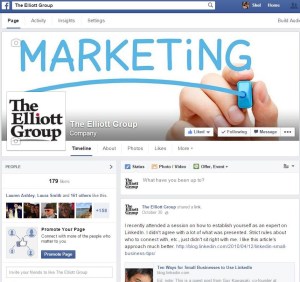 If You Build it, Will they Come?
If You Build it, Will they Come?
So, you’re a small business owner and you need a new website. Should you build it yourself or hire a professional web designer? To help you decide which option is best for you and for your small business, I’ve listed five major considerations.
Time: How much is your time worth and do you have enough time to develop your business website without neglecting other duties? “Out-of-the-box” websites can be fairly simple to design, but the project may still end up taking much more of your time than you bargained for. Meanwhile, other areas of your business could suffer – or the website could take much longer to “go live” than you want. However, if you have the time, then perhaps building your own site would work for you. “There are a lot of services out there that provide ‘templates’ for people to use to build their sites, and these services can work quite well,” says Kevin Schueller, an award-winning web designer based in Philadelphia, PA. “I recommend Squarespace and Weebly, although Weebly can be somewhat more limited.”
Knowledge: Even when using a template, you may need guidance on picking out a theme that will work for your type of business and that can meet your goals for the site. You also will need to know how to work with plug-ins, programs and html to customize your site. “You need skills to modify the template’s code to get around the limitations and create a customized site,” says Schueller. “A lot of my clients come to me because they tried to build their own site and now they’ve hit a wall. They can’t make it function the way they want and now they need help. That’s where the real value of a web designer comes in.”
Customization and Flexibility: Rarely does a website start from scratch these days, which has greatly lowered web development costs, says Schueller. “Using templates that you can modify, we have been able to build websites for $2,000 when it would have cost more than $5,000 before,” he says. The key is the modification, he notes. Just building a site from a template without customization runs the risk of having a cookie-cutter result – leaving you with nothing to distinguish yourself from the competition. For example, my agency (The Elliott Group) built a site for a realtor and we wanted to add a mortgage calculator. However, that type of enhancement required a specific plug-in and further coding to work within the context of the theme we had selected.
Search: It takes a lot of research, careful copywriting, and special coding to ensure that your site appears on the first page of search results. The hard truth is that search engines like Google are how many people find products and services these days. Not only that, many people search ONLY on a mobile device. So, your site needs to be optimized for search, as well as mobile-friendly (responsive design). This is another area where a good web designer can help you.
Copy: How comfortable are you with your grammatical, spelling and persuasive writing skills? When you create your own website, you are also the person doing all of the writing. The last thing you want is a site with misspellings, or worse, a site that doesn’t motivate a visitor to act (contact you, get more information, visit your business, buy something). Consider having a professional copywriter develop the text for your site, or at least find someone who can proofread it for you.
“It all comes down to this: small business owners need a site that they can easily edit on their own, but they shouldn’t necessarily do the initial development,” Schueller says. Using a web designer can ensure that you get a fully functioning site that you can edit quickly and easily. “We just finished a website for a new Philadelphia restaurant,” he says. “They needed to be able to change menu items, hours, announce specials and more.” Their new site allows them to do just that, with minimal effort and no need for coding knowledge.






